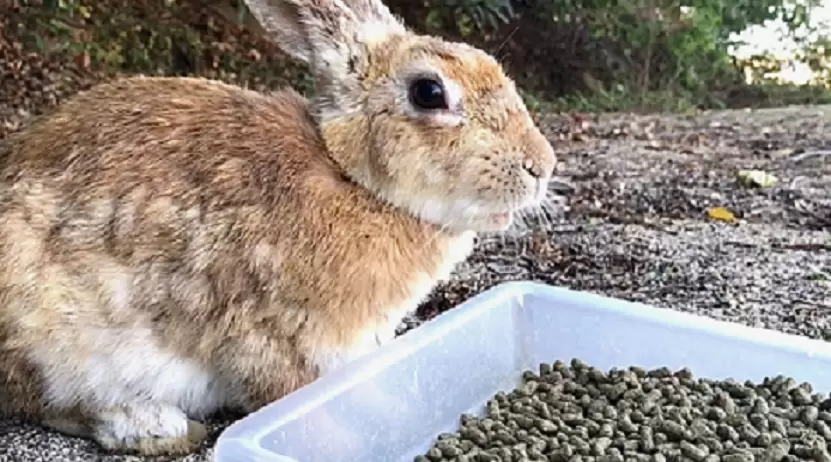As many caring rabbit owners recognize that rabbits eat blueberries, these small herbivores have more sensitive digestive structures than other pets. Their stomachs are naturally designed for digesting grasses and plant fibers, now not sugary or distinct foods.
But does this mean that rabbits eat blueberries, can never enjoy an occasional bite of something sweet and nutritious like blueberries? When provided judiciously and slowly introduced, these vibrant berries can indeed deliver benefits while satisfying any foraging urges.
This in depth manual will explore the pros and cons of blueberries for rabbits eat blueberries, endorsed amounts, and best practices for inclusions into their diets.
Nutritional Perks of Blueberries for Rabbits:
Blueberries are packed with nutrients, minerals, antioxidants and phytonutrients that guide standard rabbit health and wellness. In a standard 1/four cup serving, they offer:
- 25% daily value (DV) of vitamin C to boost immunity and collagen production. This is important for rabbits eat blueberries whose systems struggle to produce vitamin C internally like many animals.
- 15% DV vitamin K supports blood clotting and bone metabolism. Proper blood clotting is vital, as even minor wounds in rabbits’ delicate mouths could become serious without it.
- 10% DV manganese needed for bone growth and development, especially for young or nursing does. Manganese also assists carbohydrate, protein and fat metabolism essential for digestion.
- Nutritional fiber, which aids regularity and stops blockages or constipation problems not unusual in domestic rabbits kept in smaller residing spaces without getting admission to grazing.
- Phytonutrients like anthocyanins, flavonoids and antioxidant effects, defensive cells from loose radical harm related to growing older and ailment.
By including these beneficial plant compounds in moderation as part of an already balanced diet consisting of quality hay, green leafy vegetables and a small amount of quality rabbit pellets, blueberries supply welcome nutrients rabbits struggle to obtain elsewhere.

Let’s delve deeper into amounts.
Recommended Blueberry Portions for Rabbits eat Blueberries:
When we consider that a rabbit’s stomach itself is the size of a ping pong ball, it becomes clear they have little capacity for excess intake beyond their daily hay allotment.
Thus, a maximum of 1-2 tbsp. per day (16 berries for a 5-6 lbs. adult rabbits eat blueberries) should never be exceeded to avoid digestive upset. Beginnings at half that and steadily increasing over the course of a week or more is preferable.
Baby bunnies under 6 months and those under 2 lbs. fully grown need only 1 berry at most per day. For average rabbits eat blueberries 2-4 lbs., 1-2 berries daily is sufficient.
Those pushing 5 lbs. in size can probably handle 3 berries spread throughout the day. Size, individual metabolism and level of activity all impact tolerances. It’s always wise to start very small and raise portions by just 1 berry every 3-4 days of observance.
How to Feed Blueberries Naturally:
Whether hiding single berries amid hay to encourage foraging, placing 3-5 on a lettuce leaf or cupping a few in an open palm, there are fun ways to offer blueberries while satisfying natural behaviors.

Some lucky bunnies may find them frozen into grass clippings or herb bundles on hot days as a cooling popsicle enrichment. Scattering a small pot of berries around the pen gets exercise and sniffing enjoyment.
One trick is mixing a teaspoon of berries into wheatgrass, limiting quantity while harnessing attractiveness. Hay mash sprinkled sparingly with berries engages natural rooting.
The key is presenting scattered for small grazing, not bowl fed doses for rabbits that risk gorging on masse. Variety in delivery sustains interest without excess.
Signs of Too Much and Preventive Care that Rabbits eat Blueberries:
While most adjust fine with graded increase, some remain more sensitive. Ways to lower intolerance risks:
- Watch stools like a hawk for 3 days after any increase, looking for looseness indicating slowed motility.
- Offer probiotic foods like kefir, homemade yogurt or powder in water if looseness arises. These restore crucial gut flora.
- Withhold treats 24 hours if digestive issues, then reintroduce a quarter serving while monitoring another 48 hours.
- Increase calcium with greens if stool shows joining or lack of form, as proper absorption relies on mineral balance.
- Consult an exotic vet right away if changes persist longer than a few days’ supportive care at home. Dehydration risks exist.

The majority digest blueberries without issue when started gradually. But every bunny differs, demanding care focused on individual needs and signals over regimented amounts alone. Pre empties attentiveness averts potential problems.
Which Blueberry Varieties Are Best?
All commercially grown highbush blueberries bring nutritional perks, differing in subtle taste and nutrients. Organic ensures a lack of harmful chemicals. Wild varieties contain more antioxidants on average but carry botanical ID risks for poisonings.
Top recommended cultivars include the common:
- BlueScope: Sweet and high in anthocyanin antioxidants, popular Northeast US variety.
- Jersey: Flavorful berries tolerant of varied soils, yields heavy reliable crops.
- Chandler: Hardier vines suit Northern zones, berries richly flavored and firm.
Check farmers markets spring through fall for locally grown seasonal bounty at peak ripeness. Frozen wild berries retain most benefits year round for areas lacking fresh supplies.
Double check identification of foraged finds or stick to trusted cultivated types. Quality over quantity is always wisest for furry bellies.
Frequently Asked Questions(FAQs):
Q: Are bunnies allergic to blueberries?
A: Yes! Rabbits eat blueberries, but only offer a small amount.
Q: Can rabbits eat fruit everyday?
A: Only give small amounts of fruit 2 or 3 days a week.
Q: What foods make rabbits sick?
A: Cookies, nuts, seeds, grains, and bread.
Q: How to tell if a rabbit is safe to eat?
A: Check the liver for numerous white lesions about the size of a pinhead.
Q: What relaxes rabbits?
A: Place them in a familiar and secure environment.
Conclusion:
In closing, while blueberries provide welcomed nutrition for rabbits eat blueberries, their sensitive digestion demands care be taken with introductions. Starting with minute amounts and increasing gradually allows bodies to adjust without issue.
Ongoing monitoring of stools and behavior is also key to maintaining wellness. When provided judiciously as an uncommon snack rather than daily staple, these colorful berries delight bunny tastes with vitamins and antioxidants to boost overall health.
Following gentle guidelines tailored to individual needs allows rabbits eat blueberries, the enrichment of occasional foraging and treats, balancing enjoyment with supportive gut well being.

Edward Charlie has been a dedicated blog writer since 2008, amassing 16 years of experience in the field. Throughout his career, he has developed a keen ability to craft engaging, well-researched content that resonates with a diverse audience. Edward’s extensive background has allowed him to master various blogging niches, from technology and lifestyle to science and culture. His commitment to quality writing and insightful analysis has not only refined his skills but also earned him a reputation as a trusted voice in the blogging community. Passionate about his craft, Edward continues to explore new topics and trends, delivering content that informs and captivates his readers.